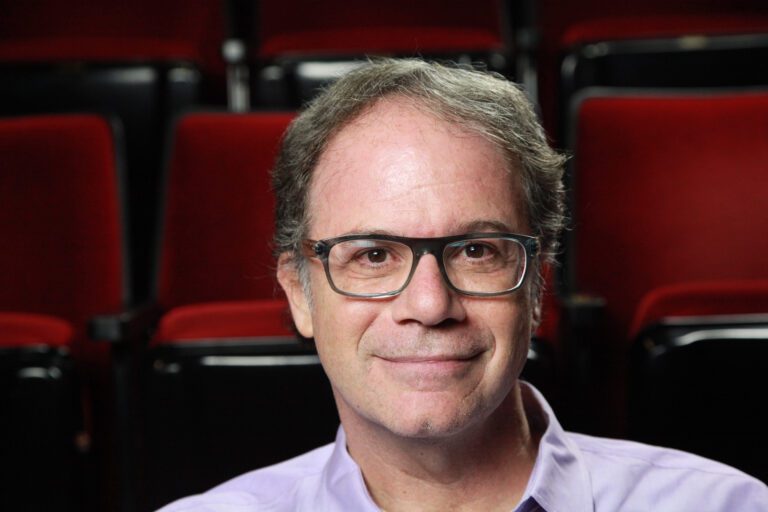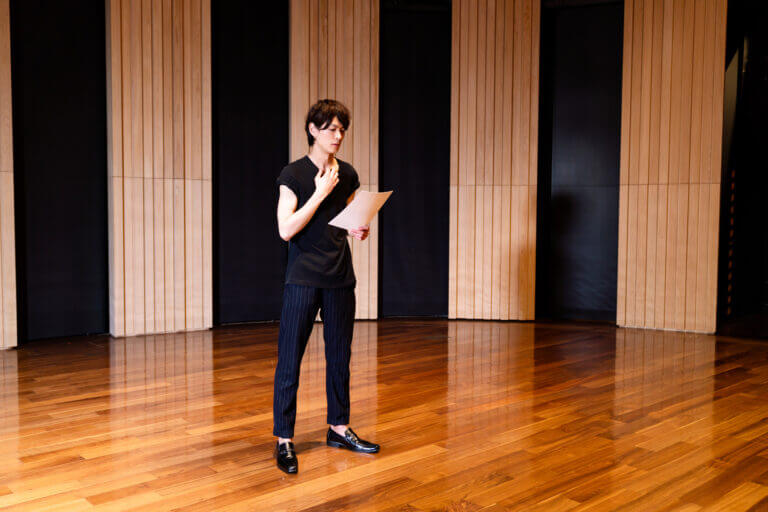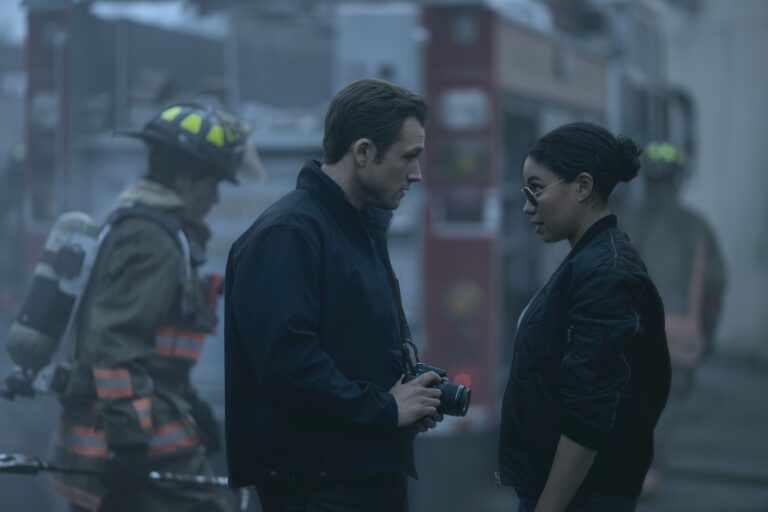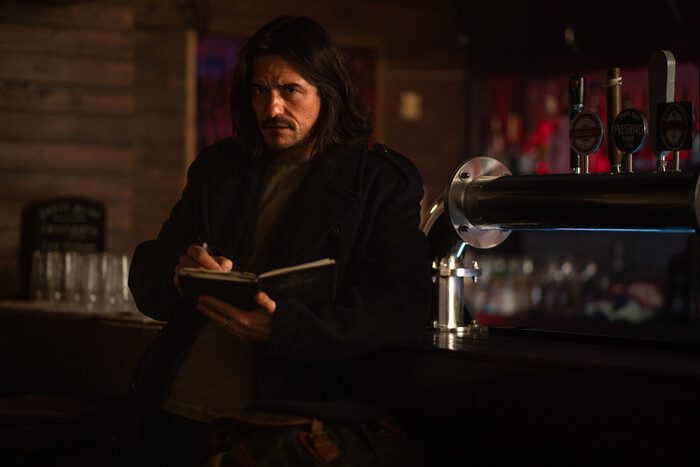Will Chase is a familiar face from numerous movies and TV shows. That type of character actor who is constantly in demand and always working worms his way into your consciousness so that you think you know him from somewhere. Then you see him on screen and say, “Oh, yeah! That’s how I know that guy!”
Considering that he became an actor somewhat by accident, that’s pretty impressive. Like a lot of successful character actors, he’s a delightful individual, even if he’s best known lately for playing villains. The most recent of those dastardly types was in Apple TV’s summer miniseries The Crowded Room, starring Tom Holland. Chase shines as the evil stepfather of Holland’s character.
He spoke to us from his home in Park Slope, Brooklyn.
How did you get into acting in the first place?
Well, I did it in high school and all that, but I really was doing the music thing. I studied to be a conductor. I was a percussionist. I went to Oberlin Conservatory, which was amazing. I was studying conducting and Oberlin was such a small school that they needed people outside of the acting program to do things.
A buddy directed a production of Sweeney Todd my junior year and I was in it. Enough people outside the conservatory, in the vocal department and the acting department, said I might want to rethink things. Not that I was a shitty percussionist, but thank God for the guidance of those people saying, “Hey, you should think about doing that.”
Between my junior and senior years, I went to do summer stock at a place called College Light Opera Company [on Cape Cod]. They do nine shows in nine weeks. I loved it, then moved to Chicago and started acting right after I graduated.
Did you get right into the Chicago theater scene from there?
Right into it. I mean, like, immediately. I had an audition for an original musical that you would have never heard of. They couldn’t find their person, so I went in, and it was one of those things where there are eight guys lined up and they go, “Okay, you sing four bars of that. Okay, stop. You sing four bars of that.” I sang, I did a monologue from Equus and they said, “You got the job.” It was one of those fun things and I think I made $300 for the entire run.
You can call yourself a professional actor and how many people right out of college can do that?
That’s exactly right. I was just talking to both of my daughters. They are 24 and 22 and acting. I always do the whole, “I used to eat Sun Chips and a Diet Coke every day. And I loved it.” That’s all I had (laughs), but it’s true. I was like, “This is acting. This is what it is, man. I love it.”
Chicago is a great learning ground. People come to see non-equity theater there, so you could really climb a nice ladder there and get some exposure, but also you get your bones and learn how to do a show eight times a week.
What then brought you to New York?
People had seen me do some things in Chicago and I got a national tour of Miss Saigon. I eventually played Chris and was doing that for a couple of years.
Are you one of those annoying people who never actually had a job other than acting?
(Laughs) No, no. I played Chris forever on the road, then came back to New York and knew I needed to move there without a job because a few previous Chris’s had moved to New York because they’d gotten the gig on Broadway.
I knew that wasn’t happening for me, so I said, “Screw it. Let’s go to New York and see what happens.”
We lived in Jersey City, and I worked at a gym in Hoboken. I love the early morning, and I would get up at 4 a.m. to open the gym. There were already meatheads at the door waiting to get in. Then I booked Rent, the understudy to Mark and Roger. That was the second cast. I still did the gym gig for about a month, and my ex was like, “You know you don’t have to do that anymore, right?”
Your career has evolved over the years, and it feels like you play a lot of villains these days.
Oh, yeah, that’s what I do now.
In my experience, I find that a lot of the people who play villains really well are salt-of-the-earth sweethearts in real life. I think we could probably describe you that way, too.
Please put that in caps when you write this (laughs). I get asked this a lot. They’re more fun to play, obviously, but the thing is, we all have three dimensions.
That’s what I try to do with all these guys, you know? Not to make them sound like we should feel for them, but we should see that they are real. That was the fun thing about doing The Crowded Room. But I do in general play a lot of them and I think there’s an authenticity or a genuineness that I try to bring. Some kind of reality to the guy.
A really good villain always thinks he’s the good guy. You can say that about Marlon, your character in The Crowded Room.
[Showrunner] Akiva [Goldsman] was amazing if I can talk about him for a minute. From the get-go, when I got the job, we really got to spend a little time together and Akiva has been very open about his own abuse in his own life.
He said the strangest thing to me when we were talking about the character. He said, “You know, my abuser loved me. I’m not just saying that like I’m some victim who doesn’t really see what happened. I know what happened to me. But most of the time, my abuser loved me. And then it was those other times that ‘oh, this is wrong, wrong, wrong.’” And he said, “That’s Marlon.”
That’s what’s fascinating to me. It’s messy. It’s realistic. That’s what’s interesting to me about playing those kinds of roles.
Casting directors use Casting Networks every day to discover people like you. Sign up or log in today to get one step closer to your next role.
You may also like:













